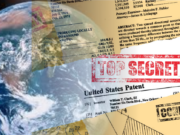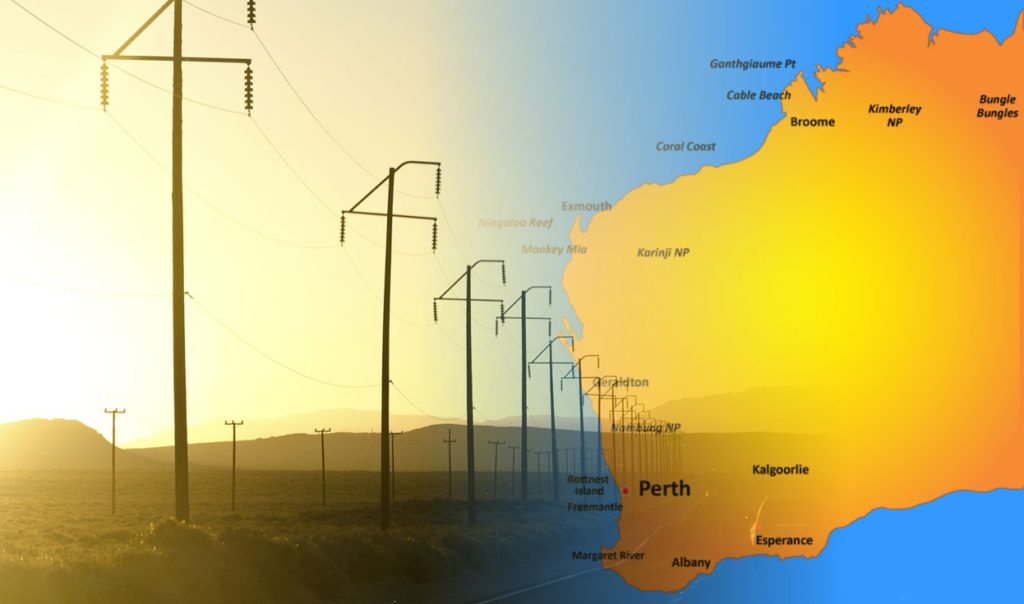by Malcolm R. Hughes
The Citizen Electoral Council (C.E.C.) is a small registered political party which I have at times subscribed to, for the pleasure of reading their magazine “Australian Alert Service.” I am not a member — I have never been a member of a political party.
Their latest bulletin shows how “privatisation” by State and Federal Governments divesting themselves of taxpayer-owned assets is now coming back to bite the taxpayer (previous owner) on the backside. The big con was that these assets were “sold” to the very people that owned them originally (Australian citizens).
Until some citizens subsequently sold their shares on the stock market – most taking capital gains — these assets were not in the hands of private enterprises.
In my opinion, the original assets owned by taxpayers and run by State as well as Federal governments through their respective public servants were essential services that could not be run at reasonable costs to the consumer, by private ownership.
A Big Country
In some circumstances, the size of our continent made it impractical for private enterprise to provide service to everyone at reasonable prices. For example, water supply, electricity supply, hospital services, railways, telecommunications, postal services, airport facilities, and education.
Believe it or not, the original Commonwealth Bank and state-owned banks were to keep the banking industry honest. The results so far of the banking Royal Commission show how much it was needed! And it was to provide loans to the public that the private banks were not interested in.
Since the run on privatisation these last three decades, governments do not have the income previously provided by those assets! So they increase or invent new taxation incomes and “service fees”.
On the other hand, the private enterprises that have acquired these assets now increase the price of these services and at times reduce the amount of service. Several of the new owners of these assets are based overseas, so do not pay income taxes within Australia, making the Federal Government lose another income stream.
As will be mentioned below in the CEC circular, the CEO of AGL, Andrew Vesey gets paid a whopping $6.9 million a year.
Your Wallet, Please, and Your Privacy
With the sale of these assets to private enterprises, also goes the control of prices for their products and the service charges made. These owners are only interested in profits for their share-holders.
Other controls of the industries are out of government’s hands unless new legislation is passed. I refer to the installation of mechanisms such as the very dangerous “smart meters”. Dangerous because of the radiation, issuing from them and also because they are used for eaves-dropping on the householder’s activities. In other words, spying.
Let me emphasize this little-considered point. If the “utility company” has the ability to spy on you, that is not subjected to such privacy rights as a citizen may have against intrusions by government. Think about it.
Another result of the privatisation, is that politicians have lessened their own areas of responsibility and are instead filling in their time with legislation to do with the non-existent terrorist problem that take away citizens’ rights and liberties.
Western Australia’s Grid
There is still a chance for WA to say “No, thank you” to privatisation of electricity. I can only hope the people will wise up fast and refuse to let this particular publicly-owned resource go the way of the others.
Please read abridged circular from C.E.C. (Citizen Electoral Council), below, or the whole thing at www.cecaust.com.au.
I look forward to your comments below. Thanks!
— Mal Hughes is a member of the GumshoeNews group, and long-standing critic of leaders who fail to lead. His recently published book is “Memories of Kiriwana.”
Demand Tariffs will Inflict More Electricity Bill Pain
A forecast national rollout of a controversial tariff system will see many Australians paying hundreds of dollars more in electricity bills each year. The ACT power company Evoenergy has conducted the largest and most comprehensive demand management (DM) trials in Australia, and industry insiders believe a “demand tariff” now exclusively used in the ACT will inevitably be implemented nationwide.
In addition to the usual supply and usage charges, electricity bills in the ACT with contracts under this “demand tariff” scheme pay a charge based on the highest peak load within a 30-minute period, calculated each month. Households with tight budgets are terrified to simultaneously turn on several appliances for fear that all of their energy saving for the month will be in vain. Just that one half-hour of extra peak loading will determine this new charge.
For instance, if on a hot evening a household is simultaneously using an air conditioner, electric stove, washing machine, and television, on top of appliances that are permanently on like the refrigerator, that spike in demand will attract an additional charge, which will be applied for the whole month. The tariff is applied even if normal usage is a tiny fraction of the peak monthly loading.
This system of billing requires “smart meters” to measure energy use in half-hour periods, so the rollout of these unpopular meters will continue, not to benefit consumers, but to boost energy company profits. Luke Griffith’s article in The Australian on 14 June, “Power prices tipped to rise under new tariff model”, reports the electricity industry sees demand tariffs “as a way to ‘protect their profits’ in response to the rise of renewable energy”. Griffith reports the concerns of Finn Peacock, a former CSIRO engineer who founded the SolarQuotes website. “With power companies increasing their profits in this way, we can expect to see this rollout nationwide in the near future,” Peacock said. “I think it’s inevitable with the rise in popularity of renewables.”
Increasing reliance on wind and solar power has already given South Australia the most expensive electricity bills in the world and the rest of the nation is not much better off.
In addition to “renewables”, privatisation of the once trustworthy State-run electricity grids is the other killer. Evoenergy (ActewAGL before 1 January 2018) is owned by AGL whose CEO Andrew Vesey gets paid a whopping $6.9 million a year. All throughout the privatised National Electricity Market, fat cats make a killing while preying on ordinary Australian battlers who are increasingly struggling to pay their power bills. Due to privatisation, around one-third of electricity bills goes to private retailers that did not exist when electricity generation and distribution were in state hands.
If we had not shut down most of Australia’s manufacturing, including the entire car-making industry, this talk of idle capacity would not even be considered. We’d be continually adding power stations to the grid to match a growing economy. It’s now past time to reject the disastrous policies which have created this crisis. Therefore we must:
- Re-nationalise all electricity generation and distribution networks;
- Abolish the Renewable Energy Target and all subsidies for inefficient and intermittent power such as wind and solar;
- Immediately build several advanced ultra-supercritical low-emissions coal-fired power stations;
- Ensure sufficient temporary generators are available to fill in for next summer’s peak loading;
- Establish a nuclear industry for the eventual transition to nuclear power. [Emphasis added]































No. (to Mal’s question)
I refused to change to a smart meter at the previous property I rented. Now I’m in a new place with already installed ‘smart’ meters. My first month’s bill was a SHOCK. I might as well put my fingers into the plug for the same shock result.
What Turnbull did not tell you about Labors taxation ideology is when privatization takes place as a alternative to taxation is, there ar no limits to profiteering in private owned resources, it is aways more expensive for most people.
No arguing with the author… great article… but just a word of caution about the CEC.
The CEC is a good source of information (its owner, Lyndon LaRue, runs the US Business Intelligence Review) but its leadership opposes democracy and supports the concept of intelligent leadership… which was exactly the idea behind Mussolini’s Fascism. The theory is that government, industry and academia are the most reliable source of intelligence and knowledge.
In my estimation, 99.99% of knowledge, intelligence, and wisdom, is outside of government and industry and there is none at all in academia.
Moreover, the people have integrity whereas only ten years of corporatisation of academia and charities was all it took to corrupt all executives and management… which soon trickled down to everybody else.
Think of the CEC as a good friend you cannot trust in the long run.
I have already argued with you in private about the stupidity of Rousseau’s “Noble Savage” nonsense. If you want someone to make and fly an aeroplane with you as a passenger you don’t get the 99.99% of people who have no idea of aeronautics engineering to build and fly the thing for you. You gotta have the people that have the skills. What you don’t want are the cunning tricksters or malicious perverts who only want to sabotage the business for their own ideological or material gain. That’s where “popular oversight” comes in…
At face value privatisation goes to the fact that it saves the head honchos of public facilities from having to answer to mismanagement/disorganisation/corruption. When you look a little closer any form of centralised dependence/control is at odds with the most fundamental principle of well-being.
Two questions that need to be asked:
* Why is electricity “sold” as though it’s a commodity; what, exactly, are consumption charges based on?
and
* Why isn’t Australia 100% solar-powered
This is a welcome pragmatic intrusion into the usual moaning about things that are so far removed from ordinary people’s comprehension. Response is stifled because it seems to be way beyond what ordinary people comprehend as something they can do to influence Caesar… and, indeed, they are exactly right about that! In this thing called “democracy” the plebiscite are only ever given the “option” of endorsing someone or something that is presented to them by a political party.
Anyhow, getting back to this immediacy. Publicly (government) owned utilities such as water supply, electricity supply, communications utilities, roads, railways, etc. etc. could/should be regarded as natural resources once they are established and the whole cost of which is the production and maintenance of supply and distribution.
Let’s get specific. When I was a young fella the Postmaster General’s Department (mainly mail and telephone at that time) was a world leader in the most efficient telecommunications of the time… being contracted to instigate and install telecommunications systems in some overseas Nations. If that trajectory had been allowed to continue Aus would have had the best, cheapest telecommunications in the World even now. But the political abject traitors, for a pile of personal coin and media adulation, handed the whole lot to the multinational predators under the guise of “privatisation”.
“This is a welcome pragmatic intrusion into the usual moaning about things that are so far removed from ordinary people’s comprehension”
What the Sam Hill are you talking about, Oldavid?
See the right sidebar? At bottom is “Archives”. Hit the archives button and choose the month of June 2018. Up will cone 30 articles (one a day is all we can manage). Name any one of those that had the least bit of moaning about things that are far from people’s confession.
And by the way, we don’t moan. I thought you would have noticed.
I was involved with one of the companies that started private contracting to Western Power in 1990. In 1993 I set up my own company for the same purpose. These small companies did all the start-up work supplying the records of all Western Power’s assets, that is poles, transformers etc while checking poles for rot and termites and treating said poles. These companies, to get work had to compete on a price basis, therefore the work was supplied very cheaply. Working mostly in country areas, across paddocks and through bush land. Once these companies realised that they were being “used” and gave up, the “big boys” (National Companies) stepped in. I would be very surprised if they would be doing comparable work for comparable prices.
Even at that time, 1990s, there were rumours in the industry of privatisation of Western Power. It was the thought that this aim was why Western Power suddenly started to upgrade assets and keep adequate records.
Mal, don’t you dare let them sell it.
I was at a Liberal Party local meeting when SA was deciding to sell its much-respected Electricity Trust. (in 2000?) I said “Look, guys. The word is the UK is going to buy it, but then they could sell it to another country, and you-know-who could switch our lights off.”
The MP who was visiting (pathetically, most Party members’ meetings have an MP as the ‘guest speaker’), Graham Ingerson, stood up and put his hand over his heart and said “I trust the UK.”
And that was that. “Love for the Mother country” won out. Just thought I’d see where Ingo is at now. This is Wikipedia:
“Ingerson held portfolios including Minister for Tourism and Industrial Affairs, Minister for Recreation, Sport and Racing, Minister for Infrastructure, Minister for Police, Minister for Emergency Service, Minister for Racing, Minister for Local Government, Minister for Industry, Trade and Tourism, and Cabinet Secretary (not a Ministerial position).
“In August 1998, Ingerson resigned from the ministry over his handling of the racing industry. He was promoted again to Cabinet Secretary in February 2000, but had to resign that in October 2001, over his handling of the Hindmarsh Soccer Stadium.
“As of 2016, Ingerson is a registered political lobbyist in the state of South Australia.”
I kid you not, he put his hand over his heart. Maybe I should have put mine over my heart and we could have called for a hand-over-heart runoff.
[quote=MM] stood up and put his hand over his heart and said “I trust the UK.” [/quote] Meaning that “I trust Freemasonry as the lackey of “the Crown” (i.e. the “City”)”.
Or simply meaning “Hey you little Party-goers, don’t get any funny notions about objecting to the privatisation of ETSA (Electricity Trust of South Australia.)”
P.S. I attended a concert last night at which one of the instrumentalists was introduced as being from the real SOUTH Australia — Tasmania.
Dee, why is my name coming up as 26chatsworth? It’s me, MM.
Mal, I’m going to give you my latest ELECTRICITY EXPERIENCE. This is the classic privatization game being played out — at everyone’s expense.
I moved recently and the realtors organised the new “hook up to electricity” service with ELEC-A company (I won’t mention names).
After the first month a bill arrives. EXORBITANT. (I was used to a non-smart meter quarterly bill). And now the one month was close to what I’d pay in a quarter. I pay on time for a 7% discount. Second month — an almost identical bill. Almost to the dollar. (Strange)
I seek out a new company (an hours research). ELEC-B. The new company offers a complex pay online discount for around 35%. I sit on the phone talking, listening to recordings… working out how the on line payment works (a good hour goes by). I sign up. 10 days cooling period.
Day 9… ELEC-A calls. instead of a 7% discount… I am being offered 32% for the whole bill if I pay on time. (More time ticks by) Okay so I don’t want a complex pay on line saga, so I stick with ELEC-A’s new offer. I listen to their voice recording of the fine print. If I pay on time I get 32%, if I don’t pay on time I will be billed with a LATE PAYMENT FEE. So what in the world is the ACTUAL BILL. Is that even even legal? I will check.
My guess… 15% plus of the COST of our ELECTRICITY BILLS are paying telemarketers and admin staff to keep up with the discounting, switching… and SCAMMING
That pretty much describes privatisation…
The normal cost, plus extra overheads for marketing, plus profits for the shareholders, plus CEO salary and bonuses.
The buzzword for the future: Renationalisation.
You read it first here LOL.